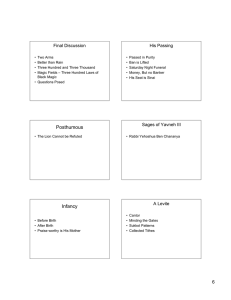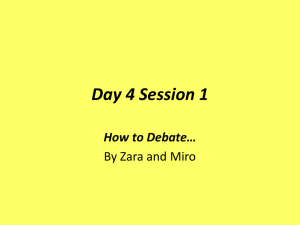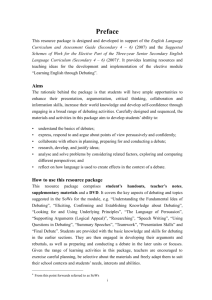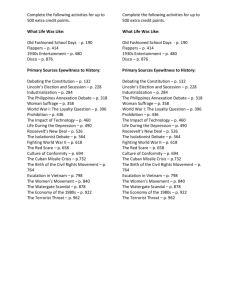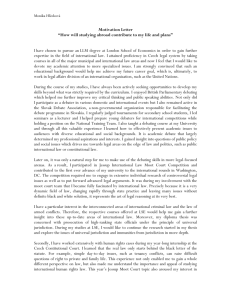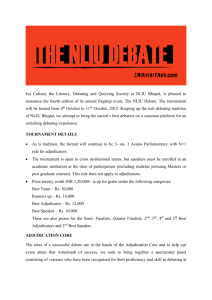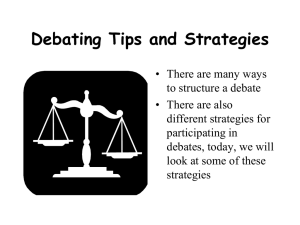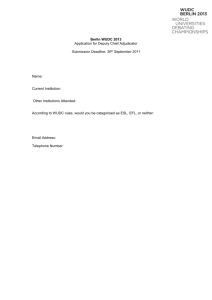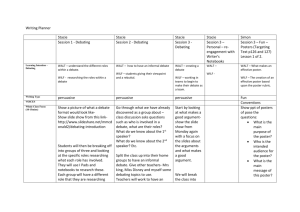CSK 3211 COMMUNICATION FOR ARGUMENTATION AND
advertisement
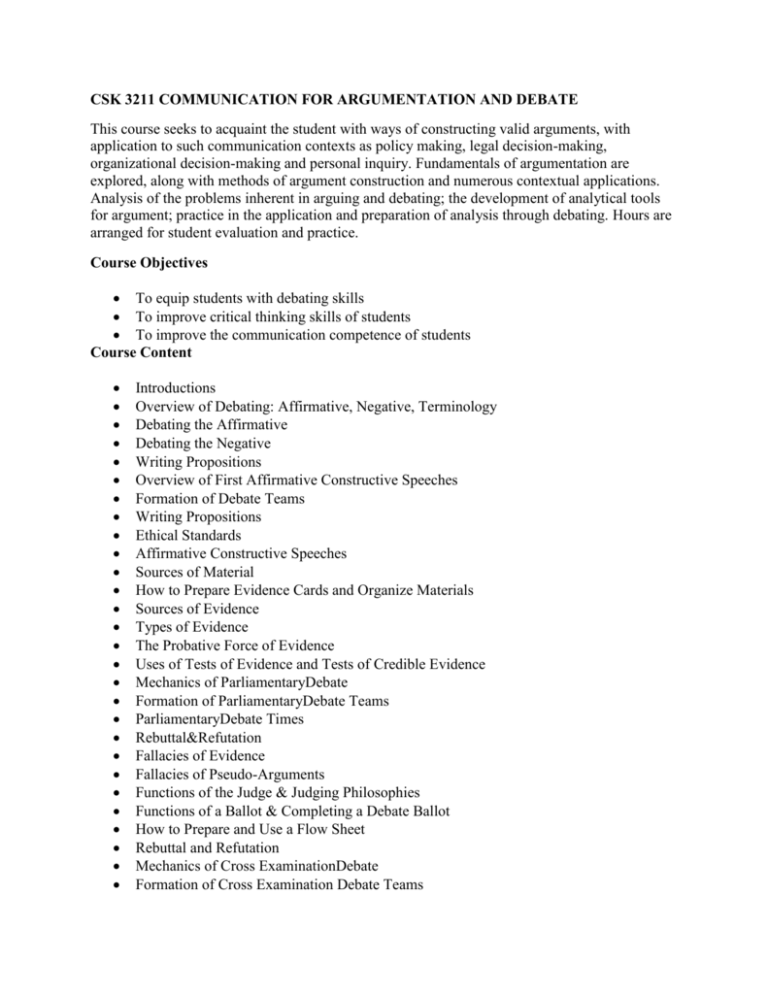
CSK 3211 COMMUNICATION FOR ARGUMENTATION AND DEBATE This course seeks to acquaint the student with ways of constructing valid arguments, with application to such communication contexts as policy making, legal decision-making, organizational decision-making and personal inquiry. Fundamentals of argumentation are explored, along with methods of argument construction and numerous contextual applications. Analysis of the problems inherent in arguing and debating; the development of analytical tools for argument; practice in the application and preparation of analysis through debating. Hours are arranged for student evaluation and practice. Course Objectives To equip students with debating skills To improve critical thinking skills of students To improve the communication competence of students Course Content Introductions Overview of Debating: Affirmative, Negative, Terminology Debating the Affirmative Debating the Negative Writing Propositions Overview of First Affirmative Constructive Speeches Formation of Debate Teams Writing Propositions Ethical Standards Affirmative Constructive Speeches Sources of Material How to Prepare Evidence Cards and Organize Materials Sources of Evidence Types of Evidence The Probative Force of Evidence Uses of Tests of Evidence and Tests of Credible Evidence Mechanics of ParliamentaryDebate Formation of ParliamentaryDebate Teams ParliamentaryDebate Times Rebuttal&Refutation Fallacies of Evidence Fallacies of Pseudo-Arguments Functions of the Judge & Judging Philosophies Functions of a Ballot & Completing a Debate Ballot How to Prepare and Use a Flow Sheet Rebuttal and Refutation Mechanics of Cross ExaminationDebate Formation of Cross Examination Debate Teams Learning Outcomes: By the end of the course students should be able to: 1. Conduct effective debates 2. Use communication as a tool to enhance their debating skills 3. Participate in debates and contribute constructively to arguments Course assessment: Extended coursework essay} Group presentation} = 30% Test} Final Comprehensive Examination = 70% (End of Semester) Instruction methods: Lectures Case Studies Group Discussion and Class Presentations Activity Research Work References: Freeley, Argumentation and Debate: Critical Thinking for Reasoned Decision Making, 10th edition, Wadsworth Publishing, 2003 Recommended text (s): Balch, Robert’s Rules of Order in Brief, 1st edition, De Capo Press, 2004 Miller, Cross-X, Farrar, Straus and Giroux, 2006 Berube, Non-Policy Debating, University Press of America, 1994

